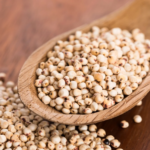Home » Skin Care
Comprehensive Skin Care Guide: Achieving Healthy, Glowing Skin Naturally
Taking care of your skin is not only about looking good—it’s about maintaining the health and integrity of your largest organ. A proper skincare routine helps you combat environmental damage, prevent signs of aging, and enhance your natural beauty. Whether you’re targeting specific issues like acne, dryness, or dullness, or you simply want to maintain healthy skin, this guide will provide effective tips and practices to achieve glowing, radiant skin.
Understanding Your Skin Type
Before developing your skincare routine, it’s crucial to understand your skin type. Different skin types require different care and products, so identifying yours will help you make the right choices.
- Normal Skin: Balanced, with minimal dryness or oiliness. Generally smooth with small pores.
- Dry Skin: Lacks moisture and can feel tight or flaky. This skin type is prone to fine lines and sensitivity.
- Oily Skin: Overproduction of sebum leads to shiny skin, enlarged pores, and a tendency for acne.
- Combination Skin: A mix of oily and dry areas, typically with an oily T-zone (forehead, nose, chin) and drier cheeks.
- Sensitive Skin: Prone to redness, irritation, and reactions to products. It needs gentle, soothing ingredients.
Essential Skin Care Routine
Regardless of your skin type, following a consistent skincare routine can improve your skin’s health and appearance. Here are the key steps to an effective routine:
Cleansing: Cleansing removes dirt, oil, makeup, and other impurities that accumulate on your skin throughout the day. Choose a gentle cleanser that suits your skin type:
- For oily or acne-prone skin: Gel-based or foaming cleansers work best.
- For dry or sensitive skin: Opt for a cream-based or hydrating cleanser.
- For normal or combination skin: A balanced, mild cleanser will suffice.
Cleanse twice a day—once in the morning and once before bed.
Exfoliating: Exfoliating helps remove dead skin cells, promoting a brighter, smoother complexion. Use a gentle exfoliant 2-3 times a week:
- For oily skin: Opt for chemical exfoliants with ingredients like salicylic acid.
- For dry skin: Choose a hydrating exfoliant with gentle physical scrubs or lactic acid.
Toning: Toner helps balance your skin’s pH, tightens pores, and prepares your skin for moisturizing. Choose a toner free of alcohol to avoid drying out your skin.
Moisturizing: Moisturizer is key to maintaining hydration and protecting your skin barrier. The right moisturizer depends on your skin type:
- For oily skin: Use a lightweight, oil-free moisturizer.
- For dry skin: Rich, creamy moisturizers will help lock in moisture.
- For sensitive skin: Look for fragrance-free, hypoallergenic products.
- For combination skin: Use a lightweight lotion in the T-zone and a richer cream on dry areas.
Sun Protection: Sunscreen is the most crucial step to prevent skin damage and premature aging. Apply broad-spectrum SPF 30 or higher every day, even when it’s cloudy or you’re indoors.
Targeted Treatments: For specific skin concerns such as acne, hyperpigmentation, or aging, consider adding serums or treatments with active ingredients like:
- Vitamin C for brightening and fighting free radicals.
- Retinol for reducing fine lines and improving skin texture.
- Niacinamide for calming inflammation and regulating oil production.
Preventing Common Skin Issues
The right skincare routine can prevent many common skin issues. Here’s how to address some of the most prevalent problems:
Acne: Acne occurs when hair follicles become clogged with oil and dead skin cells. To prevent and manage acne, use:
- Non-comedogenic products (won’t clog pores).
- Salicylic acid or benzoyl peroxide treatments.
- A gentle cleanser to avoid stripping your skin of essential oils, which can lead to increased oil production.
Dryness: Dry skin lacks moisture and can appear flaky or rough. To combat dryness:
- Use a gentle, hydrating cleanser.
- Apply a rich moisturizer immediately after cleansing.
- Add a hyaluronic acid serum to your routine to lock in moisture.
Dullness: Dull skin lacks radiance and can make you look tired. To restore your glow:
- Exfoliate regularly to remove dead skin cells.
- Use brightening ingredients like vitamin C or niacinamide.
- Stay hydrated and maintain a balanced diet rich in antioxidants.
Aging: Fine lines, wrinkles, and loss of elasticity are common signs of aging. To prevent premature aging:
- Apply sunscreen daily.
- Use products with anti-aging ingredients like retinol, peptides, and antioxidants.
- Stay hydrated and eat a balanced diet rich in healthy fats and vitamins.
Natural Remedies for Healthy Skin
Incorporating natural ingredients into your skincare routine can enhance your skin’s health. Here are some DIY remedies to try:
Honey and Oatmeal Mask: Honey is a natural humectant that hydrates the skin, while oatmeal soothes irritation. Mix honey with ground oatmeal and apply as a face mask for 10-15 minutes.
Aloe Vera: Aloe vera has cooling and anti-inflammatory properties, making it perfect for soothing sunburns or sensitive skin.
Green Tea: Rich in antioxidants, green tea can help reduce redness and fight free radicals. Brew a cup, let it cool, and use it as a refreshing toner.
Coconut Oil: Coconut oil is excellent for moisturizing dry skin. Use it as an overnight treatment for rough patches, but avoid it if you’re prone to acne, as it can clog pores.
Turmeric and Yogurt Mask: Turmeric has anti-inflammatory properties, while yogurt contains lactic acid to gently exfoliate. Combine these ingredients to create a mask that brightens and calms the skin.
Diet and Skin Health
What you eat plays a significant role in your skin’s health. A nutrient-rich diet can help improve skin clarity, reduce inflammation, and promote a healthy glow.
Antioxidants: Foods rich in antioxidants (berries, spinach, nuts) help protect your skin from environmental damage and premature aging.
Healthy Fats: Omega-3 fatty acids found in fish, flaxseeds, and walnuts help keep skin supple and hydrated.
Hydration: Drink plenty of water to keep your skin hydrated and help flush out toxins.
Vitamins and Minerals: Vitamins A, C, E, and zinc are essential for maintaining clear, healthy skin. Include foods like carrots, citrus fruits, and leafy greens in your diet.
Recent Post
- 1
- 2





